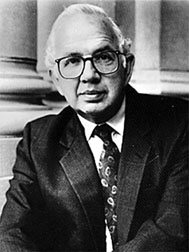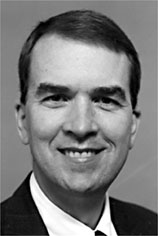By Matt Welnack staff reporter TCU students are cliquish, student government is unpopular and students are not very happy, reported a survey conducted by The Princeton Review. The survey was published in the Review's annual guidebook, "The Best 331 Colleges - 2000 Edition." About 175 students from each of the 331 colleges were given a 70-question survey that asked them to give their opinions on topics ranging from quality of teaching to social life. The multiple-choice surveys were given out in central traffic areas on campus and an assessment of each college was made based on the surveys, according to a statement released by the Review. The report also ranked colleges in 62 different categories. TCU placed fifth in the "little race or class interaction between students of different backgrounds" category. Darron Turner, director of minority affairs and commuter student services, said the lack of diversity is mainly a result of the lack of minority students on campus. "There are not a lot of students of color here," he said. "It's also not being in the same place at the same time." Turner also said some students may not feel comfortable interacting with minority students. "Traditionally, students come to college with comfort zones," he said. "Students are not willing to take that extra step to interact." The university must lay a foundation to help all students feel comfortable interacting with minority students, Turner said. The rankings were based on student responses to the surveys. "I think you have to take all of these with a grain of salt," Vice Chancellor for Student Affairs Don Mills said. But junior business major Curt Long said he agrees somewhat with the survey's results, which also stated that class discussions are rare at TCU, fraternities and sororities dominate the social scene and food on campus is lousy. "I don't think it is the whole story of TCU," he said. "But I'd agree with most of the points." Shawna Hutto, a junior fashion merchandising major, said she also partly agrees with the results of the survey. "I think a lot of that is true, but I think they are making it sound worse than it really is," she said. Dustin Griffith, a junior radio-TV-film and theater major said although diversity on campus is lacking, he does not see any racial tension at TCU. "I think it is primarily a white school, but I personally interact with other races every day," he said. Christina Thompson, a junior pre-med major, said she thinks TCU students should take it upon themselves to improve the university's image. "I think some of (the survey results) are true, but I think you have to look at it in a positive way," she said. "If (the students who participated in the survey) want to see change, they should do something about it and get involved." According to the survey, applicants to TCU also look at and sometimes prefer the University of Texas at Austin, Texas A&M University and Rice University. The colleges students do not prefer, however, are Southern Methodist University, Austin College and Southwestern University, the survey stated. SMU also placed in the top 20 in several categories. The university finished fourth in the "great college town" category and "major fraternity and sorority scene" category. It also finished 11th in the "reported usage of hard liquor" category.
By Steven Baker Staff Reporter Rabbi Harold S. Kushner, author of "When Bad Things Happen to Good People," will discuss the role of religion in everyday life and unrealistic expectations of perfection during two separate lectures Tuesday.
Diane R. Cooper, fundraiser chairwoman for Brite Divinity School's Jewish studies program, said administrators did not know the evening lecture would sell out so quickly. "If we had known how popular he was going to be, we would have reserved Daniel-Meyer Coliseum," she said. "We are thrilled with the response but disappointed that we could not accommodate more of the students." Cooper said people who have heard Kushner speak want to hear more of his message of compassion. "Some of the people that we have talked to say it is not only that they have been inspired by him but that he has really touched them," she said. "During particular tragic times in their lives, they have been able to find comfort from his books."
By Matt Stiver staff reporter Retirement and insurance benefits will be discussed during the TCU Staff Assembly meeting at 3:30 p.m. Tuesday in the Justin Board Room of the Dee J. Kelly Alumni Center. Chancellor Michael R. Ferrari will also report on the state of the university. Ken Morgan, chairman of the geology department and chairman of TCU's resources and benefits committee, said he will be available to answer any questions staff members might have. "They will hear proposals of how (the Staff Assembly) will interface with the resources committee to show them how to put forward staff requests for benefits, such as paid time off, holidays and childcare," he said. Morgan said he thinks benefits should be equal for all TCU employees, regardless of whether they are faculty or staff members. "I've been very supportive of parity (benefits) for all employees," Morgan said. "If benefits are given to one group, they should be given to all groups at TCU." The Staff Assembly began taking shape Fall 1998 and consists of 47 representatives from across the university. Each assembly member represents 20 staff members. Last spring, membership nomination forms went out to all university divisions. Each division then elected its own representatives. Chairwoman Mary Lane, executive assistant in education, said she is happy with the assembly. "I'm very enthusiastic," she said. "I think the communication it will create, between administrators, faculty and staff, will be extremely beneficial. The biggest benefit of the staff assembly is its ability to communicate with other organizations from across campus." Ferrari said the idea for the Staff Assembly came from a conversation he had with a staff member. "I approved the creation of the organization last spring in response to a desire from a staff member to have such a group to come together on a regular basis to share thoughts and ideas about the strength of (TCU) and ideas about the welfare of members of the staff," he said. Lane said TCU's staff assembly is unique and welcoming. "Chancellor Ferrari said as far as he knows, (the staff assembly) is the only organization of its kind in the country," Lane said. "His idea was to create an inclusive membership." Roger Pfaffenberger, chairman of the Faculty Senate, said the university staff needed an organization like the assembly. "The staff must know their work is very important," he said. Pfaffenberger said he and the Faculty Senate will work closely with Lane and the Staff Assembly. "(Faculty and staff) are all here for the same reason: to provide the highest academic program possible," he said. "Each member contributes in different ways. Faculty creates academic programs. Staff support those programs. Each is very important." Morgan said the Staff Assembly is an important addition to the campus. "Every employee group should have the chance to express their voices," Morgan said. "The Staff Assembly will give them a forum to express their views to administrators on whatever might be important to them. "I think it was astute of Ferrari to help them organize. (A staff assembly) should have been here 20 years ago."
By Steven Baker staff reporter Students and alumni of the M.J. Neeley School of Business will gather this week to hear plans for the future of TCU and its business school. A town hall meeting, sponsored by Interim Dean William C. Moncrief, will be held from noon to 1 p.m. Wednesday and Thursday in Dan Rogers Hall, Room 140. And the M.J. Neeley Alumni Association (NAA) Steering Committee will hold a Fall '99 Kickoff with a buffet breakfast and remarks by Chancellor Michael R. Ferrari at 7:30 a.m. Thursday in the Student Center Ballroom.
Moncrief said the town hall meeting is a chance to tell business school students about building the image of the school through advertising and more contact with alumni, downtown Fort Worth and other communities. Moncrief's town hall meeting will begin with his remarks, followed by questions from students. The interim dean said he hopes to see at least 30 students - who are prepared to discuss the present and future of the business school - in each session. "I have always had a pretty close relationship with students," he said. "I know there are things that are broken in a way and we just don't think about it as administrators or faculty. This meeting allows the students a chance to tell us what they like and what they don't like." Moncrief specifically mentioned registration difficulties - due to the large number of undergraduate business students - as an issue to be addressed during the meeting. Kimberly See, coordinator of the Neeley Student Resource Center, said the meeting is an opportunity for the dean to connect with students. See also said the Neeley Associate Program started planning the town hall meeting this summer. The Neeley Associate Program - composed of eight business students - plans programs and acts as ambassadors for the school, See said. Nicki Reynolds, a junior accounting and finance major and Neeley Associate, said the town hall meeting has been a collaborative effort with Moncrief. "(He) is a big part of the business student's life," she said. "Instead of the business school being stagnant, he wants it to be dynamic." Jan Titsworth, project manager for the NAA kickoff breakfast and former assistant to the dean, said she has asked Ferrari to update the alumni on the current status of TCU and how to bring the business school to the next level. "This event is a way to get alumni enthusiastic about assisting the Neeley School," she said. "Alumni are excited to come to the breakfast and meet current students. Networking is an effective way to get jobs and internships." |
| The TCU Daily Skiff © 1998, 1999 Credits |
 The "What's the Point of Being Religious?" lecture,
which is free and open to the public, will begin at 2:30 p.m. at University
Christian Church, 2720 S. University Drive. The "How Good Do We Have
To Be?" lecture, which is sold out, will start at 8 p.m. in Ed Landreth
Hall Auditorium.
The "What's the Point of Being Religious?" lecture,
which is free and open to the public, will begin at 2:30 p.m. at University
Christian Church, 2720 S. University Drive. The "How Good Do We Have
To Be?" lecture, which is sold out, will start at 8 p.m. in Ed Landreth
Hall Auditorium. The dean's town hall meeting will provide an opportunity
for business students to meet the interim dean.
The dean's town hall meeting will provide an opportunity
for business students to meet the interim dean.